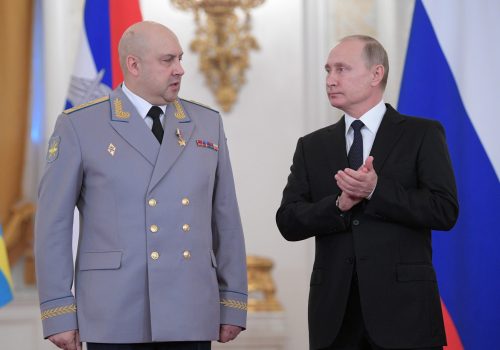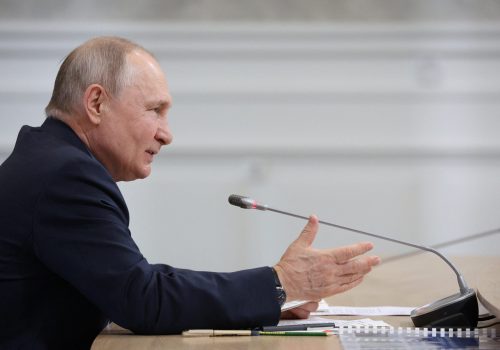What is it like living through the nightmare of war in the twenty-first century? For most people, this would conjure up images of devastated cities, collapsing economies, and a desperate rush for survival. However, Ukraine’s experience over the past year-and-a-half is proof that life can go on, even in the most challenging of circumstances. Despite suffering the horrors and trauma of Russia’s ongoing invasion, Ukrainians continue to open new businesses, get married, pay taxes, and apply for financial assistance from the state. This remarkable resilience has been possible in large part thanks to Ukraine’s digital revolution.
Digital tools like Uber and Booking have long since become part of our everyday lives, providing basic services with maximum convenience. Imagine if all your interactions with the state could be as efficient and unintrusive; imagine if you could pay taxes or register a business in a matter of seconds via your smartphone. In Ukraine, this is already reality.
Launched in September 2019, Ukraine’s Diia app is a core element of the country’s digital infrastructure that has dramatically enhanced Ukrainian society’s ability to withstand the Russian invasion. More than 19.2 million Ukrainians currently use Diia, which is installed on approximately 70% of the smartphones in the country. In regions of Ukraine under Russian occupation, it is often the only way for Ukrainians to receive assistance or access services provided by the Ukrainian government.
International audiences have already noticed the effectiveness of Diia. Estonia, which has long been a global leader in the field of digital government, is currently implementing a similar app based on Diia. Countries in Latin America and Africa are next in line to develop their own versions. This recognition for Ukraine’s innovative e-governance app should come as no surprise; after all, it has now proven itself in the toughest of wartime conditions.
Stay updated
As the world watches the Russian invasion of Ukraine unfold, UkraineAlert delivers the best Atlantic Council expert insight and analysis on Ukraine twice a week directly to your inbox.
Diia is not just a wartime success story, of course. In the almost four years since it was first launched, the app has managed to slowly but surely transform Ukrainian attitudes toward innovation while shaping perceptions regarding the role of digital technologies in daily life. Following the introduction of digital passport and driver’s license functions, Diia became a routine tool for millions of Ukrainians. The realities of the Russian invasion have now further embedded the app into the country’s everyday existence.
This familiarity has helped build growing levels of public trust in the digital state. Indeed, most Ukrainians have overcome any initial fears related to the pace of digitalization in the country and now openly embrace Ukraine’s digital revolution. People are no longer paranoid about the possibility of personal data leakages and have stopped worrying about how elderly relatives will cope with smartphone technologies.
It has also been some time since I last encountered by personal favorite: What will happen if the state has all my personal information? In reality, of course, the state has always had access to the information that is now digitally available via Diia. The only difference is users can finally access this information themselves in a highly convenient and transparent manner.
Eurasia Center events

Since 2019, Ukrainians have learned that digital tools can offer high levels of security in addition to efficiency. Indeed, security has always been at the heart of Ukraine’s digital transformation. A number of important decisions were made on the eve of Russia’s full-scale invasion that underlined this commitment to prioritizing the safety of users and their data, including steps to move the entire Diia infrastructure to cloud format.
We created our own in-house team of hackers to probe the Ukrainian government’s digital systems for weaknesses, and also worked with partners to engage hackers around world with the task of penetrating the Diia platform. They found no security vulnerabilities. Security has been further enhanced by the introduction of the Diia.Signature function, which provides an extra layer of protection for particularly sensitive e-services such as changing place of residence or registering a car.
One of the last remaining arguments against digitalization is the claim that an over-reliance on digital technologies will backfire in the event of restricted access to electricity or the internet. Ukrainians have now debunked this myth by maintaining high degrees of digital connectivity throughout the fall and winter months of the past year, despite the blackout conditions created by Russia’s large-scale bombing campaign against Ukraine’s civilian energy infrastructure. Businesses continued to operate and online services remained available as the nation adapted from October 2022 onward to the uncertainty of regular power cuts. Satellite internet, Starlink, and power generators all played crucial roles in this process, proving that digital solutions do not require perfect conditions in order to improve quality of life.
For the past eighteen months, Ukrainians have demonstrated that the digital state is both safe and convenient. They have done so in incredibly testing conditions amid the largest European war since World War II, which is also widely recognized as the world’s first full-scale cyberwar. This achievement should dispel any lingering doubts that governments across the world will all eventually go digital. As they embrace digitalization, other countries can look to Ukraine as a model and as a source of inspiration.
Mykhailo Fedorov is Ukraine’s Vice Prime Minister for Innovations and Development of Education, Science, and Technologies, and Minister of Digital Transformation.
Further reading
The views expressed in UkraineAlert are solely those of the authors and do not necessarily reflect the views of the Atlantic Council, its staff, or its supporters.

The Eurasia Center’s mission is to enhance transatlantic cooperation in promoting stability, democratic values and prosperity in Eurasia, from Eastern Europe and Turkey in the West to the Caucasus, Russia and Central Asia in the East.




